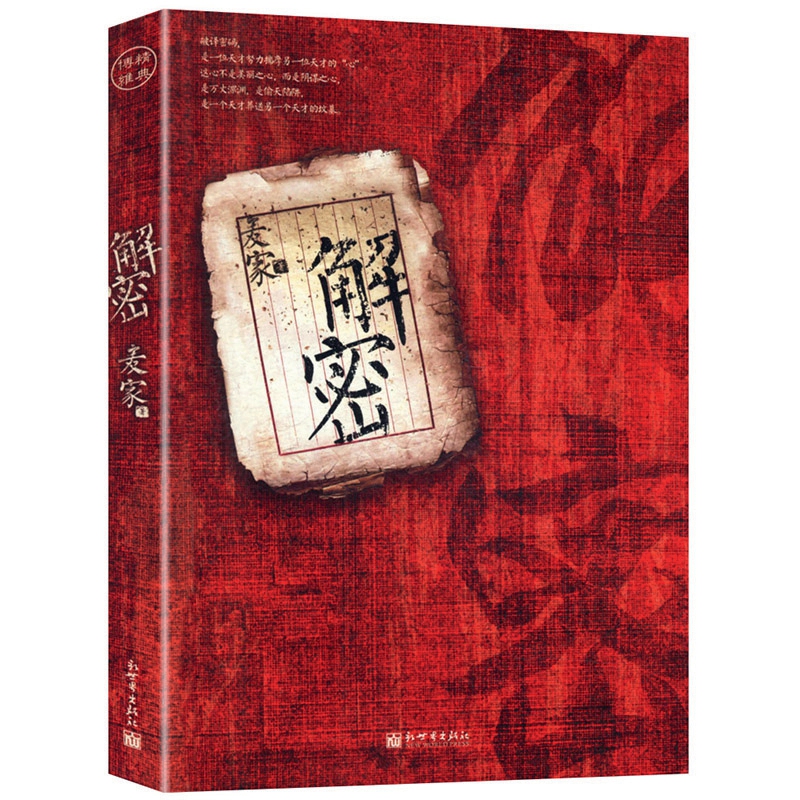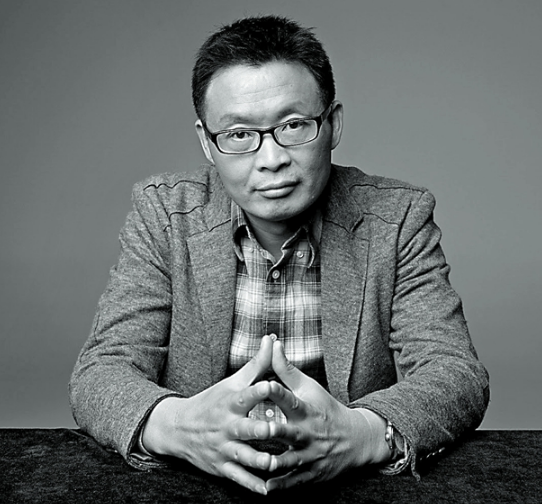Mai Jia: The Dan Brown of China?
China Today,May 28, 2018 Adjust font size:
Heartbeat of a Story
Decoded has been translated into 33 languages and won Mai worldwide fame. The main character, Rong Jinzhen, is a mathematical genius plagued with depression. Having been recruited by classified agencies, he was tasked with breaking two sets of top codes, which led him onto a breathtaking journey.
Most protagonists in Mai’s novels are solitary heroes who are highly intelligent. He confessed that he is obsessed with this type of personality, which he sees a little of in himself. On one side, the characters are extremely talented; on the other, they are incredibly vulnerable.
Solitude in Mai’s own character has made its way into each one of his works. He likens his genius to tungsten wires, which if illuminated too much, would burst into flames.
After Decoded, Mai created several espionage novels including In the Dark, Sound of the Wind, and Whisper of the Wind, each becoming bestsellers and their television adaptations sweeping the public by storm.
Decoded.
The successful commercialization of spycraft-themed productions was beyond Mai’s imagination. He believes this has continued to change over time.
According to Mai, literature is about how to tell a good story. If you can tell the same story but in an offbeat or unfamiliar way, this is what is classified as modern, or avant-garde.
In the early 1990s, Mai spent three years in Tibet. For a full year he was immersed in the short story collection The Book of Sand by Borges, a world-renowned avant-garde author with brilliant story-telling techniques. “He has been hailed as ‘the writer of writers,’ with a very high status within the literary community,” Mai said. “Upon closer inspection, Borges actually told philosophical stories resembling the Tales from One Thousand and One Nights.”
The Silent War.
Some liken Mai Jia to Dan Brown, author of The Da Vinci Code. Mai said he is not worthy of the praise, and that Dan Brown is not his icon. He has no wish to create a new genre of literature, but instead wishes to focus on the destiny of humans and to explore the profundity of humanity.
After Decoded was published, reviews mostly highlighted Mai’s eternal, universal theme of humanity and solitude rather than plots of decoding.
“In usual stories, there are sounds of footsteps; but good novels should have a heartbeat,” Mai said. “Why do we still shed tears at the scenes of A Dream of Red Mansions, Anna Karenina, and Peony Pavilion? Because of the reunion and the departure, the love and hate, and the sentiments and vengeance that we have today still relate to the humanity 500 years ago. Good books transcend time and remain in people’s heart.”



